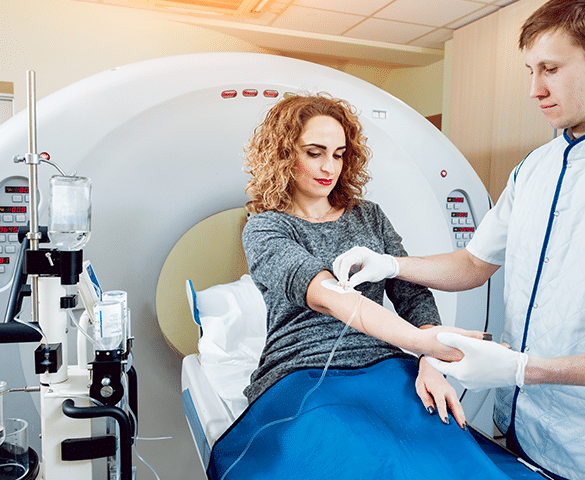Weight loss can be a frustrating journey, especially when diet and exercise don’t yield the expected results. Many people look for additional ways to boost fat-burning, and lipotropic injections for weight loss have become a popular option. These injections are designed to speed up metabolism, enhance fat breakdown, and provide an extra energy boost.
But do they really work? Are they safe? In this article, we’ll explore the ingredients, benefits, effectiveness, and potential risks of lipotropic injections, helping you decide if they are the right weight loss aid for you.
What Are Lipotropic Injections?
Lipotropic injections are fat-burning shots that contain a blend of vitamins, amino acids, and other nutrients that support metabolism and fat loss. The key ingredients usually include:
- Methionine – An amino acid that helps break down fat and supports liver function.
- Inositol – Aids in fat distribution and insulin regulation.
- Choline – Essential for liver health and fat metabolism.
- Vitamin B12 – Boosts energy levels and metabolic function.
- L-Carnitine – Helps transport fat to be used as energy (optional ingredient).
These components work together to help the body process fat more effectively, making it easier to lose weight when combined with a healthy diet and exercise.
How Do Lipotropic Injections Work?
Lipotropic injections work by promoting the breakdown of fat and improving metabolic processes. Here’s how they help with weight loss:
- Enhancing Fat Metabolism – The liver plays a crucial role in fat processing, and these injections help optimize its function to break down and eliminate fat more efficiently.
- Boosting Energy Levels – The B vitamins in the injections help convert food into energy, making workouts and daily activities easier.
- Reducing Fat Storage – The combination of choline, inositol, and methionine prevents excess fat buildup in the liver and other parts of the body.
- Supporting Detoxification – These injections promote liver detoxification, ensuring that waste and toxins are efficiently removed from the body.
- Improving Metabolic Rate – A faster metabolism means the body burns calories more efficiently, helping with weight management.

Benefits of Lipotropic Injections for Weight Loss
1. Faster Fat Breakdown
Lipotropic injections enhance the body’s ability to metabolize fats, making weight loss more efficient.
2. Increased Energy
By improving the conversion of food into energy, these injections help people feel more energetic and active.
3. Appetite Control
Some users report reduced cravings and improved portion control, making it easier to stick to a healthy diet.
4. Liver Support
A healthy liver is essential for fat metabolism and overall well-being. Lipotropic injections help the liver function optimally.
5. Improved Mood and Focus
Vitamin B12 and other ingredients can contribute to better mental clarity and a more positive mood.
Are Lipotropic Injections Effective?
The effectiveness of lipotropic injections varies from person to person. Their success depends on several factors, including:
- Dietary habits – A balanced, nutrient-rich diet enhances the benefits of these injections.
- Physical activity – Regular exercise helps maximize fat-burning potential.
- Consistency – Following a regular injection schedule ensures optimal results.
- Individual metabolism – Some people naturally respond better to metabolic boosters than others.
While scientific research on lipotropic injections is still limited, many people report positive results when combining them with healthy lifestyle choices.
Potential Side Effects and Risks
Lipotropic injections are generally safe, but some individuals may experience mild side effects, such as:
- Redness, swelling, or discomfort at the injection site.
- Mild nausea or digestive issues.
- Dizziness or lightheadedness.
- Allergic reactions (rare).
To minimize risks, it’s best to consult with a healthcare professional before starting lipotropic injections.
Who Should Consider Lipotropic Injections?
These injections may be helpful for individuals who:
- Struggle to lose weight despite a healthy diet and exercise.
- Experience low energy levels.
- Want to support their liver function.
- Need an extra boost in their weight loss journey.
However, lipotropic injections are not suitable for pregnant women, individuals with certain medical conditions, or those allergic to any of the ingredients.
How Often Should You Get Lipotropic Injections?
The frequency of lipotropic injections varies depending on individual goals. Generally, recommendations include:
- 1-2 injections per week for general weight loss support.
- More frequent injections for individuals following medically supervised weight loss programs.
Your doctor or weight loss specialist can help determine the best injection schedule for you.
Lipotropic Injections vs. Other Weight Loss Methods
Lipotropic Injections vs. Diet Pills
Unlike diet pills, which may contain stimulants and chemicals, lipotropic injections focus on natural fat metabolism and energy production without causing jitters or heart issues.
Lipotropic Injections vs. Fat Burners
Fat burners often rely on caffeine and thermogenic ingredients, while lipotropic injections work at a deeper level by aiding liver function and metabolism.
Lipotropic Injections vs. Weight Loss Surgery
For those looking for a non-invasive option, lipotropic injections are a safer and more affordable alternative to surgical weight loss procedures.
How to Maximize Results with Lipotropic Injections
To get the best results, follow these lifestyle tips:
- Follow a Healthy Diet – Focus on whole foods, lean proteins, and healthy fats.
- Exercise Regularly – Combine cardio and strength training to burn more calories.
- Stay Hydrated – Drinking enough water supports metabolism and fat elimination.
- Get Enough Sleep – Poor sleep can slow metabolism and increase cravings.
- Stick to a Routine – Consistency is key for long-term weight loss success.
How Do Lipotropic Injections Target Fat Loss?
Lipotropic injections work by addressing the metabolic processes responsible for fat breakdown and energy production. The key components—methionine, inositol, choline, and vitamin B12—play essential roles in fat metabolism.
- Methionine acts as a lipotropic agent that helps prevent excess fat buildup in the liver, ensuring the efficient processing of dietary fats.
- Inositol supports liver health and helps break down fat, reducing the risk of fatty liver disease.
- Choline aids in fat transport and metabolism, ensuring that fat is utilized as an energy source rather than stored.
- Vitamin B12 enhances energy production, allowing individuals to maintain an active lifestyle and burn more calories.
Together, these ingredients create a synergistic effect, optimizing the body’s ability to metabolize fats, improve liver function, and enhance overall energy levels.
What to Expect During Lipotropic Injections Treatment
The procedure for receiving lipotropic injections is simple and quick. A healthcare provider administers the injection, usually in the upper arm, thigh, or buttocks. The entire process takes just a few minutes, making it a convenient option for busy individuals.
Does It Hurt?
Most people report minimal discomfort, similar to a standard vitamin injection. Some experience slight soreness at the injection site, but this typically subsides within a few hours.
How Long Does It Take to See Results?
The timeframe for noticeable weight loss varies depending on the individual. Some users report increased energy and slight weight loss within a few weeks, while others may need several months to see significant changes. The best results come from combining lipotropic injections with a healthy diet and regular exercise.
Can Lipotropic Injections Replace Diet and Exercise?
No. While lipotropic injections can support weight loss, they are not a substitute for healthy eating and an active lifestyle. They should be used as part of a comprehensive weight loss plan rather than as a standalone solution.
Are Lipotropic Injections Safe?
Lipotropic injections are generally considered safe when administered by a licensed professional. However, as with any medical treatment, they carry some risks.
Who Should Avoid Lipotropic Injections?
Lipotropic injections may not be suitable for individuals with:
- Liver or kidney disease
- Cardiovascular conditions
- Allergies to any of the injection ingredients
- Certain metabolic disorders
- Pregnancy or breastfeeding
It is always best to consult a healthcare provider before starting treatment to ensure safety and effectiveness.
How Much Do Lipotropic Injections Cost?
The cost of lipotropic injections varies depending on location, provider, and treatment plan. On average, prices range from $30 to $75 per injection, with some clinics offering package deals that reduce the overall cost.
Some factors that affect pricing include:
- The number of injections needed per week
- The specific formula used (some providers offer enhanced versions with additional vitamins and amino acids)
- Whether the treatment is part of a medically supervised weight loss program
At-Home vs. In-Clinic Lipotropic Injections
Some companies offer at-home lipotropic injection kits, allowing individuals to self-administer the shots. However, there are risks associated with self-injection, including incorrect dosage and improper administration.
Benefits of In-Clinic Injections
- Administered by a trained professional
- Ensures correct dosage and safety
- Personalized guidance and monitoring
Risks of At-Home Injections
- Higher risk of incorrect injection technique
- Possibility of contamination or infection
- Lack of professional supervision
For safety and effectiveness, it is recommended to receive lipotropic injections from a licensed healthcare provider.
Lipotropic Injections and Long-Term Weight Management
While lipotropic injections can help with initial weight loss, they are not a permanent solution. Maintaining weight loss requires ongoing healthy habits, including:
- Balanced Diet – Eating whole, nutrient-rich foods to sustain metabolism.
- Regular Exercise – Engaging in both cardio and strength training workouts.
- Consistent Hydration – Drinking plenty of water to support metabolic processes.
- Adequate Sleep – Ensuring 7-9 hours of rest per night for hormonal balance.
By integrating these lifestyle changes, individuals can sustain their results even after stopping lipotropic injections.
Final Thoughts
Lipotropic injections for weight loss can be a helpful tool for individuals struggling to shed excess fat. While they enhance fat metabolism and provide an energy boost, they work best when combined with a proper diet and exercise routine.
If you’re considering lipotropic injections, consult with a medical professional to ensure they align with your health goals. With the right approach, these injections can be a valuable addition to a sustainable weight loss journey.





